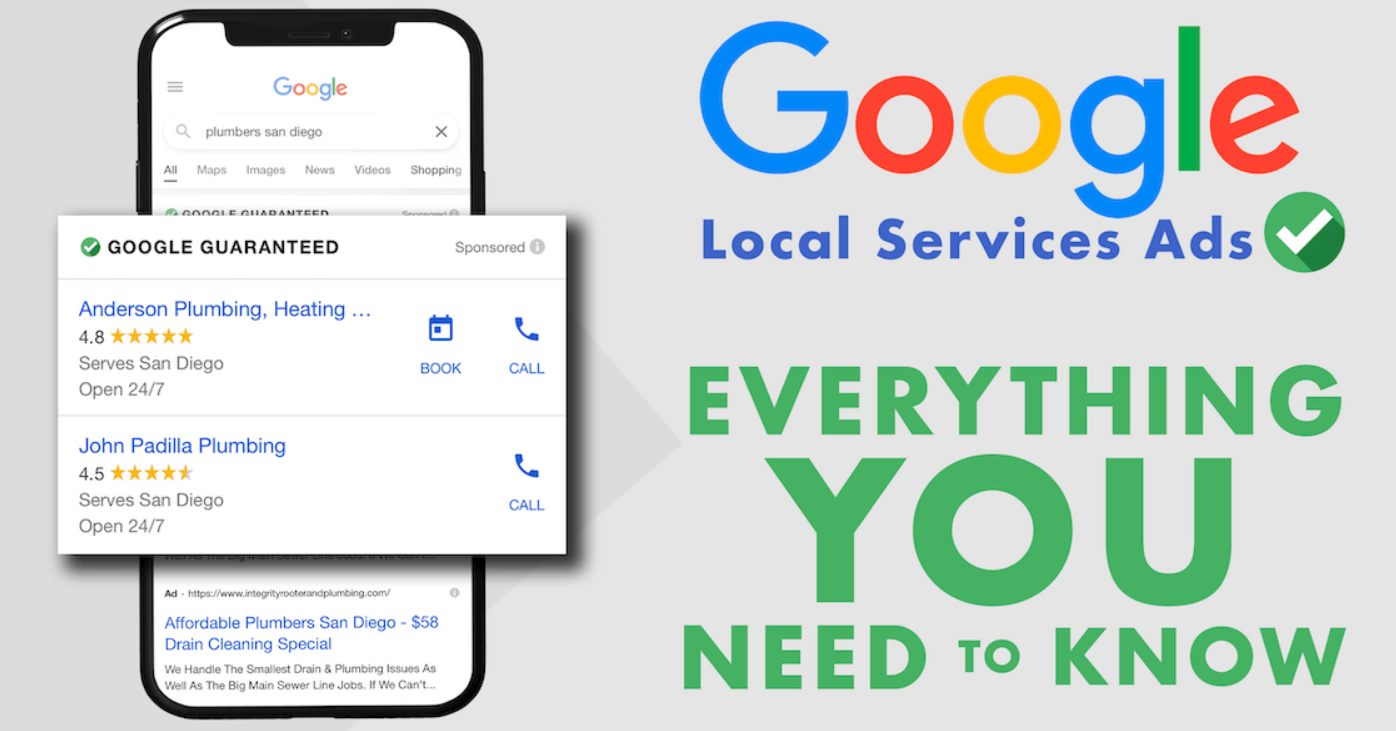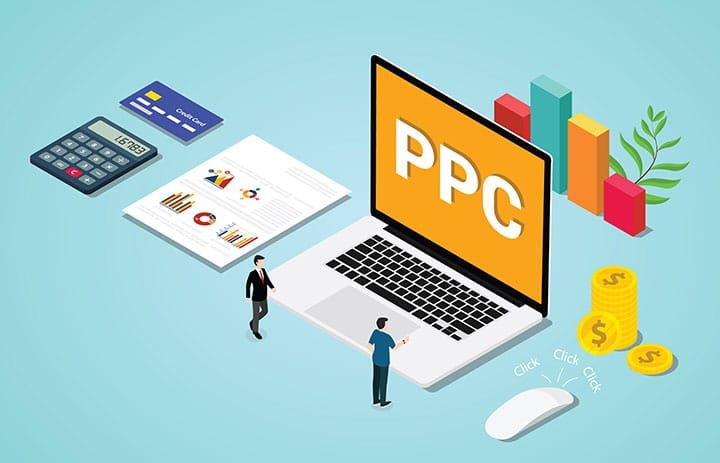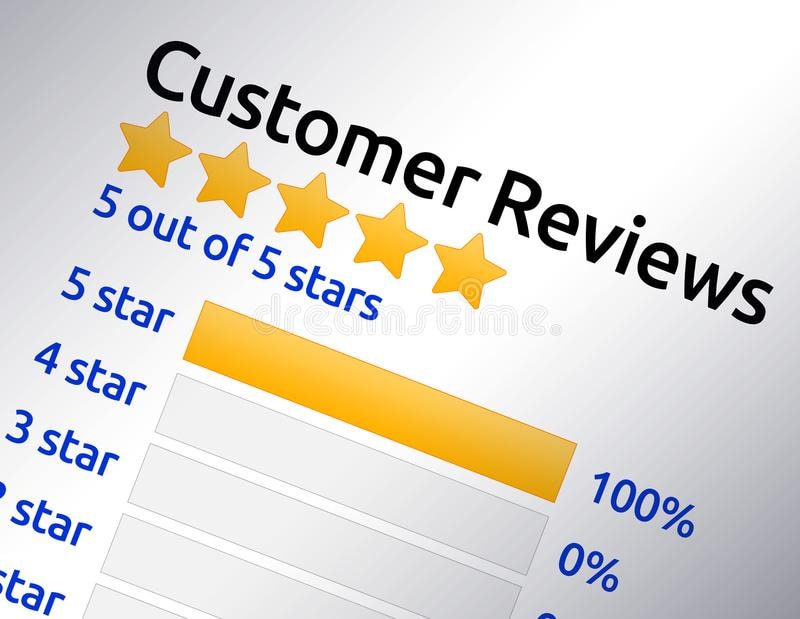Let’s cut to the chase: If your law firm is still depending on referrals and an outdated website to drive growth, you’re already behind. The landscape of law firm marketing in 2025 has evolved rapidly. Your competition is investing in smarter strategies, AI tools, video content, and localized visibility. Clients expect to find and trust you before even picking up the phone.
Most attorneys begin their journey in law school, but after graduation, the real challenge becomes standing out through effective law firm marketing.
This article breaks down the essential marketing tactics every law firm should have in place, followed by standout strategies designed to give you an edge in your local market. The goal isn’t to do everything—it’s to do the right things exceptionally well.
Whether you are a family law attorney, criminal defense attorney, personal injury lawyer, or focus on another practice area, these are the strategies that matter in 2025.
Introduction to Law Firm Marketing
Law firm marketing is the process of promoting a law firm’s services to attract potential clients and drive business growth. In 2025, law firm marketing is more essential than ever, as the legal industry becomes increasingly competitive and digital-first. With more law firms investing in digital marketing, standing out requires a well-crafted law firm marketing strategy that goes beyond traditional tactics. A strong firm marketing approach helps law firms increase brand visibility, establish credibility, and reach new clients who are searching for legal services online. By embracing innovative marketing strategies, law firms can position themselves as leaders in their field and ensure their brand visibility remains high in a crowded marketplace.
What Is Law Firm Marketing and Why Does It Matter in 2025?
Law firm marketing encompasses a range of activities designed to connect law firms with their target audience and convert prospects into paying clients. This includes search engine optimization (SEO) to improve your law firm’s visibility in search engine results, content marketing to provide valuable information, social media marketing to engage with your community, and paid advertising to reach potential clients quickly. In 2025, these firm marketing efforts are more important than ever, as clients increasingly rely on search engines and online platforms to find legal help. Effective law firm marketing not only boosts your search engine rankings but also builds trust and authority, helping your firm stand out from competitors. By investing in a comprehensive marketing strategy, law firms can attract more website visitors, convert them into paying clients, and achieve sustainable growth in a rapidly evolving legal landscape.
The Evolution of Law Firm Marketing

Over the last decade, law firm marketing has gone from optional to essential. Gone are the days when a Yellow Pages listing or a referral from a friend was enough to keep your practice thriving. Today, visibility is digital, and your reputation is built through search engines, reviews, and online content.
Effective marketing is now a crucial part of practicing law. Lawyers must balance their legal work with the business and marketing aspects of their firm to attract clients and remain competitive. Law firms that continue to invest in traditional advertising alone are missing out on the channels that actually drive client decisions. Traditional methods such as direct mail can still be effective for reaching specific local audiences, but they should be complemented by digital strategies to maximize impact. From Google to YouTube to ChatGPT, the way clients find legal help has changed—and your firm must adapt to stay relevant.
Developing Your Law Firm’s Marketing Strategy for 2025

A successful law firm in 2025 needs more than just a website and a few ads—it needs a comprehensive, forward-thinking law firm marketing strategy that highlights your law firm’s branding and online profiles. Start by identifying your firm’s unique practice areas and defining your target audience. This clarity will guide all your marketing efforts, ensuring you reach the right potential clients with the right message.
Blend traditional law firm marketing with modern digital marketing efforts for a balanced approach. While referrals and networking still matter, your law firm’s website should be the cornerstone of your digital presence. Optimize every page for relevant keywords that your potential clients are searching for, and make sure your site delivers valuable content that answers their questions and builds trust.
Don’t overlook the power of search engine optimization (SEO) and content marketing. Law firm SEO is a key component of digital marketing strategies for legal practices, helping to improve online visibility and client acquisition. Regularly publish blog posts, FAQs, and guides that address your clients’ needs. Use local SEO tactics to ensure your firm appears in searches for legal services in your area, and leverage social media marketing to increase brand visibility and establish credibility.
Establishing your law firm’s strong, recognizable identity and online presence is essential for standing out in a competitive market. Building trust and differentiating your practice is crucial—your law firm’s brand serves as a key differentiator that attracts prospective clients and communicates your unique value.
Ultimately, your law firm marketing strategy should be a living document—review and refine it regularly to keep up with changes in the legal industry and digital landscape. By aligning your marketing efforts with your business goals, you’ll attract more website visitors, convert them into clients, and set your firm up for long-term success.
Must-Have Tactics for Law Firms in 2025
Google Local Service Ads (LSAs)

Google LSAs are among the most effective tools for law firms looking to generate phone calls from local clients. These ads show up at the very top of Google’s search results, above traditional PPC and organic listings. The pay-per-lead model means you only pay when someone actually contacts you—not for every click.
What makes LSAs especially powerful is the “Google Screened” badge, which instantly signals trust. It also simplifies the user journey. Potential clients can call you directly from the ad without even visiting your website.
To make LSAs work for your firm:
- Ensure your law firm meets eligibility requirements (license, insurance, background checks).
- Focus on building up Google reviews.
- Respond to leads quickly to improve your ad ranking.
- Keep your business profile up to date with your practice areas, office hours, and photos.
For law firm marketing in competitive areas, LSAs are a non-negotiable part of your paid media strategy.
Google Search Ads (PPC)

Paid search advertising remains one of the most efficient ways to reach people who are actively looking for legal help. Paid ads, such as Google Search Ads, can deliver immediate marketing results and improve ROI for law firms by quickly connecting you with potential clients. When someone types “divorce lawyer near me” or “DUI attorney in [your city],” a well-structured Google Ads campaign puts you at the top of the results.
But not all PPC campaigns are created equal. The most successful firms:
- Segment campaigns by practice area and location.
- Use targeted landing pages instead of a generic homepage.
- Include clear calls-to-action and multiple contact methods.
- Monitor performance and adjust bids and keywords regularly.
In any comprehensive law firm marketing plan, PPC ensures your firm is found by the right people at the right time.
Responsive, High-Converting Website

Your law firm website is your digital first impression. In 2025, that means law firm websites need to be responsive, fast, and designed to convert. A well-optimized law firm website is essential for attracting prospective clients and establishing your authority online.
Every visitor should immediately understand who you help, what services you offer, and how to contact you. Avoid clutter, confusing navigation, or outdated design elements. Mobile optimization is crucial—more than half of legal searches now happen on smartphones.
Make sure your website includes:
- Clear calls-to-action (“Call Now,” “Book a Free Consult”)
- Practice area pages with relevant, helpful content
- Testimonials, case outcomes, and lawyer bios
- Fast load times and intuitive navigation
- Regular assessments of your law firm’s website performance to ensure ongoing SEO and user experience improvements
Law firm marketing that neglects the website experience leaves money on the table. Consider a free website audit to identify areas for improvement and boost your law firm’s website visibility and effectiveness.
Local SEO and Google Business Profile Optimization

If your firm isn’t appearing in the Google Map Pack, you’re missing a huge slice of local search traffic. Local SEO helps you rank for high-intent searches like “family lawyer near me” or “best DWI attorney in [city].”
It starts with a fully optimized Google Business Profile:
- Add all relevant practice areas as services.
- Include a detailed business description with keywords.
- Upload professional photos of your team and office.
- Post regular updates and announcements.
Beyond GBP, ensure that your business info (NAP: name, address, phone) is consistent across all online platforms. Build local citations on legal and general directories, and make sure to list your business on various online directories, including legal and local business directories, to enhance local visibility. Earn backlinks from community partnerships or local media.
Online Reviews

Before someone hires you, they’re checking your reviews. It’s that simple. A firm with 50 recent five-star reviews will win more clients than one with five outdated ones. In addition to online reviews, client testimonials—especially as video content—are powerful tools for building trust and credibility. Video testimonials humanize your law firm’s brand and showcase successful client outcomes, helping to engage potential clients across various platforms.
Make review collection part of your client journey. Ask for reviews after a successful resolution. Use automated tools to follow up and make the process seamless. Don’t ignore negative reviews—respond respectfully and show you care.
Prioritize:
- Google reviews (most visible)
- Facebook and Avvo for secondary credibility
- Consistency over time, not just a one-time review push
Reviews are the fuel that powers many other law firm marketing channels, including LSAs and local SEO.
Building a Strong Online Presence
In 2025, a strong online presence is the backbone of any successful law firm marketing strategy. With more potential clients turning to search engines and digital platforms to find legal services, law firms must ensure they are visible, credible, and engaging across multiple online channels. Building this presence goes far beyond simply having a law firm website—it’s about consistently delivering valuable content, engaging with your target audience, and establishing your law firm as a trusted authority in your practice areas.
A robust online presence not only increases your law firm’s brand visibility but also helps you connect with both potential clients and legal professionals. By leveraging a mix of content marketing, local SEO, and social media marketing, law firms can improve their search engine rankings, attract more website visitors, and convert those visitors into paying clients. Whether you’re a small law firm looking to compete with larger firms or an established firm aiming to maintain your edge, investing in digital marketing efforts is a key component of long-term growth and client satisfaction.
Types of Content Law Firms Should Create in 2025
To stand out in the competitive legal industry, law firms need to embrace a diverse content marketing strategy that addresses the needs and interests of their target audience. Here are the essential types of content law firms should prioritize in 2025:
- Blog Posts: Regularly publishing insightful blog posts on your law firm’s website is a cornerstone of effective content marketing. Focus on topics relevant to your practice areas, answer frequently asked questions, and provide actionable legal tips. Well-optimized blog content helps improve your search engine optimization (SEO), boosts your website’s rank on search engines, and attracts potential clients searching for legal services.
- Videos: Video marketing is a powerful way to humanize your law firm, showcase your expertise, and engage your audience. Create videos that introduce your attorneys, explain legal concepts, share client testimonials, or address common legal questions. Share these videos across your website, YouTube, and social media channels to increase brand visibility and drive more website visitors.
- Infographics: Simplify complex legal information with visually appealing infographics. These are highly shareable on social media and can help your law firm reach a broader audience while supporting your local SEO efforts.
- Podcasts: Launching a podcast allows your law firm to discuss current legal issues, interview industry experts, and provide valuable insights to both potential clients and legal professionals. Podcasts help establish your law firm’s brand as a thought leader and can attract a loyal following.
- Social Media Posts: Consistent, engaging social media posts are crucial for building a strong social media presence. Use platforms like LinkedIn, Facebook, and Twitter to share updates, promote your content, and interact with your audience. Social media marketing is a key component of any law firm marketing strategy, helping you connect with both past clients and new prospects.
- Client Testimonials and Case Studies: Highlighting real client experiences and successful case outcomes builds trust and credibility. Feature client testimonials and detailed case studies on your law firm’s website and in your marketing materials to demonstrate your commitment to client satisfaction.
- Email Newsletters: Keep your law firm top-of-mind with regular email newsletters. Share legal updates, firm news, and helpful resources to nurture leads, maintain relationships with past clients, and encourage referrals.
- Legal Guides and eBooks: Offer comprehensive legal guides or eBooks that address common concerns in your practice areas. These resources can be used as lead magnets to capture contact information from potential clients and position your law firm as an authority in the legal industry.
- Webinars and Online Courses: Hosting webinars or creating online courses on relevant legal topics allows your law firm to educate your audience, demonstrate expertise, and generate qualified leads. This approach is especially effective for small law firms looking to expand their reach and establish credibility.
- Directory Listings: Ensure your law firm is listed in reputable online directories, including legal directories and local business listings. Optimized directory profiles improve your local SEO, make it easier for potential clients to find you, and enhance your law firm’s online reputation.
By embracing a multi-channel content marketing approach, law firms can significantly increase their brand visibility, improve search engine rankings, and attract more paying clients. Whether you’re a small law firm or an established firm, investing in high-quality content and digital marketing efforts is essential for building a strong online presence and achieving your marketing goals in 2025 and beyond.
Social Media Marketing for Law Firms in 2025
Social media marketing has become a key component of law firm marketing efforts, offering law firms a powerful way to connect with potential clients and showcase their expertise. In 2025, a strong social media presence is essential for firm marketing, as it allows law firms to share valuable content, engage with their audience, and build a recognizable brand. By consistently posting relevant updates, answering questions, and participating in conversations, law firms can position themselves as trusted resources and attract new clients. Social media marketing also provides opportunities to highlight client testimonials, share case successes, and demonstrate your law firm’s commitment to serving the community—all of which contribute to a positive reputation and increased visibility.
Platforms, Trends, and Engagement Strategies
In 2025, law firms should prioritize platforms like LinkedIn, Facebook, and Twitter to effectively reach their target audience. These channels are ideal for sharing thought leadership, legal updates, and firm news. Video marketing continues to be a major trend, with live streaming and short-form videos helping law firms increase engagement and brand visibility. Partnering with influencers or collaborating with other professionals can further expand your reach and establish credibility within the legal industry.
To maximize engagement, law firms should focus on sharing informative and timely content, responding promptly to comments and messages, and utilizing targeted social media advertising to reach new clients. Regularly interacting with past clients on social media can encourage referrals and keep your firm top-of-mind for future legal needs. By integrating social media marketing into your overall law firm marketing strategy, you can achieve your marketing goals, strengthen your online presence, and build lasting relationships with both new and existing clients. This approach not only increases brand visibility but also helps establish your law firm as a credible and approachable authority in your practice areas.
Standout Strategies to Dominate Your Market in 2025
Video Content for YouTube and Social Media

Video marketing isn’t optional anymore. It’s the fastest way to build trust and familiarity online. Video marketing allows you to engage your audience, showcase your expertise, and humanize your brand. And the good news is: you don’t need fancy equipment or studio-quality editing.
Start simple. Create:
- FAQ Videos: Answer common client questions like “How is custody determined in New Jersey?”
- Tips & Explainers: Share legal insights in your practice area.
- Intro Videos: Introduce yourself, your team, and your approach.
- Client Testimonials: Feature satisfied clients sharing their experiences and successful outcomes.
Distribute this content across:
- YouTube (for search visibility and SEO)
- Instagram Reels and Facebook Stories (for discovery)
- LinkedIn (especially for B2B or professional services)
- Your website and landing pages (to improve conversion rates)
- Repurpose video content into social media posts to maximize reach and engagement.
Law firm marketing strategies that include video tend to see higher engagement, increased conversions, and better brand recall.
Digital Out-of-Home Advertising (DOOH)

While most firms compete online, DOOH is your chance to get noticed offline in high-traffic, high-visibility spaces. Think digital screens in apartment lobbies, gyms, gas stations, office elevators, or highway billboards.
DOOH is ideal for building awareness in your local community. You’re not asking someone to call you immediately—you’re planting the seed so when they do need legal help, they remember your name.
Venues to consider:
- Fitness centers and wellness studios
- Grocery stores and pharmacy screens
- Public transit hubs
- Residential buildings in affluent neighborhoods
Pair DOOH with geo-targeted digital campaigns to reinforce your presence on multiple channels. Smart legal marketing involves reaching people where they live, work, and move.
Educational Lead Magnets

Instead of hoping a visitor fills out your contact form, offer them something valuable in exchange for their email. A lead magnet positions you as helpful and builds a warm list of potential clients, while also engaging prospective clients who are seeking information before making a decision.
Create downloadable resources like:
- “The Complete Divorce Planning Checklist for Parents”
- “What to Do Immediately After a DWI Arrest in NJ”
- “Estate Planning Essentials: A Guide for First-Time Homeowners”
Use these guides to:
- Collect leads who aren’t ready to hire yet
- Nurture contacts with educational follow-ups to engage and convert prospective clients
- Build authority and trust before the first call
You can also repurpose the content into blog posts, email campaigns, and short video scripts. Educational content plays a huge role in long-term law firm marketing ROI.
Content Strategy for AI and Answer-Based Search

Clients are no longer just using Google. They’re turning to AI tools like ChatGPT, Perplexity, and voice assistants to get answers to their legal questions.
That means your content strategy must shift from “keyword stuffing” to answering real questions clearly and concisely. When AI tools scan the web for reliable content to quote, they prioritize well-structured, authoritative, and helpful writing. These strategies not only help with Google, but also improve your visibility on other search engines like Bing and Yahoo!.
Tips for AI-optimized content:
- Use headers and bullet points to break up answers
- Write in plain English—avoid legalese
- Format posts as FAQs (“Can I get sole custody if my spouse has a drug problem?”)
- Use schema markup so search engines understand your content better
This approach also boosts your chances of appearing in Google’s featured snippets and voice search. Legal marketing that adapts to AI tools will future-proof your firm’s visibility.
Visibility in AI Search Tools

AI search platforms are rapidly changing how people find information. Whether someone types into ChatGPT or asks Siri a question, the source of that answer may come from your website—if it’s written and structured correctly.
To increase your visibility in these environments:
- Focus on clear, factual content that addresses a single topic per post
- Keep paragraphs short and scannable
- Include dates, locations, and legal context when relevant
- Stay consistent with publishing—AI tools reward active domains with fresh content
AI-optimized content is a key component of a future-proof law firm marketing strategy.
This is one of the most overlooked aspects of modern law firm marketing. Getting it right now will keep your firm visible tomorrow.
Presence in Online Legal Directories

Directories like Justia, Avvo, FindLaw, and Super Lawyers still matter for visibility and credibility. These platforms play a crucial role in strengthening your law firm online presence by making it easier for potential clients to find and evaluate your services. Many of them rank well in organic Google results, meaning your profile could show up even when your website doesn’t.
Claim and optimize your listings with:
- Up-to-date contact details and office hours
- Comprehensive bios and service areas
- Awards, associations, and speaking engagements
- High-quality headshots and logos
Don’t set it and forget it. Monitor your profiles for reviews, answer questions when possible, and keep information fresh. A strong directory presence supports your SEO, reinforces your credibility, and drives referral traffic.
Marketing for Small Law Firms: Challenges and Opportunities

Small law firms often face the challenge of limited marketing budgets and fewer resources compared to larger competitors. To ensure sustained growth and competitiveness, small law firms should consider allocating a specific percentage of the firm’s gross revenue to marketing efforts. Smaller firms must navigate unique challenges and opportunities, requiring creative approaches to stand out in a competitive landscape. However, these constraints can actually be an advantage when paired with the right marketing strategy. By focusing on targeted, cost-effective digital marketing efforts, small law firms can punch above their weight and attract new clients.
Embrace content marketing as a core part of your approach. Create high-quality blog posts, guides, and videos that showcase your expertise and answer the questions your potential clients are asking. This not only builds trust but also helps your firm rank higher in search engines.
Leverage digital marketing channels like email marketing and social media marketing to reach a broader audience without breaking the bank. Regular email newsletters keep your firm top-of-mind with past clients and prospects, while active social media profiles help you engage with your community and share your latest insights.
Don’t overlook the power of local services ads and Google Ads. These platforms allow small law firms to target specific geographic areas and practice areas, generating qualified marketing leads and driving new clients to your door. Developing structured marketing plans is essential for small law firms to build a solid foundation, expand outreach, and support sustained growth through tailored, measurable initiatives. With a focused strategy and consistent effort, small law firms can turn their size into an advantage and build a strong, recognizable brand in their local market. Even an established firm must continue to invest in effective marketing strategies to attract clients and grow their practice.
Practice Area Marketing: Standing Out in Your Niche

To truly stand out in a crowded legal market, law firms must focus on practice area marketing. By zeroing in on your specific niche, you can position your firm as the go-to authority for potential clients seeking expertise in that area. Identifying and understanding your target market is essential, as it allows you to tailor your marketing strategies to the specific demographic your practice area serves.
Start by developing valuable content that addresses the unique needs and concerns of your target audience. Thought leadership articles, detailed guides, and case studies not only demonstrate your knowledge but also help your law firm’s website rank higher for relevant keywords through search engine optimization (SEO).
Promote your expertise through social media marketing and email marketing campaigns. Share your latest articles, answer frequently asked questions, and provide updates on changes in your practice area to keep website visitors and past clients engaged. This ongoing communication builds trust and keeps your firm top-of-mind when legal needs arise.
By consistently delivering valuable content and optimizing for search engines, your law firm can attract more potential clients, establish credibility, and grow your reputation as a leader in your chosen practice area.
Measuring and Optimizing Your Marketing Efforts

Effective law firm marketing isn’t just about launching campaigns—it’s about measuring results and making data-driven improvements. Use tools like Google Analytics to track website visitors, monitor conversion rates, and assess your search engine rankings. It’s important to monitor and analyze your law firm’s marketing efforts by tracking key performance indicators (KPIs) and using analytics tools. This data will help you understand which law firm’s marketing efforts are driving paying clients and which need adjustment, ensuring your investment is strategic and ROI is measurable.
Regularly review client reviews and online reviews to gain insight into client satisfaction and identify areas for improvement. Positive feedback can be leveraged in your marketing, while constructive criticism highlights opportunities to enhance your services and client experience.
Set aside time for periodic marketing audits to ensure your marketing strategy aligns with your business development goals and is making the most of your marketing budget. When determining your marketing budget, consider allocating at least 8% of your firm’s gross revenue to marketing expenses to remain competitive. By continuously optimizing your approach, you’ll maximize your return on investment, attract more qualified leads, and ensure your law firm remains competitive in a rapidly evolving legal industry.
Bringing It All Together: Your Law Firm Marketing Blueprint

Law firm marketing in 2025 is about clarity, visibility, and trust. You don’t have to be on every platform or produce a mountain of content. But you do need to show up where it counts and provide real value when you do.
Here’s how it all ties together:
- Start with the foundation: LSAs, PPC, a fast law firm’s website, local SEO, and reviews to strengthen your law firm’s online presence.
- Layer in standout tactics: video content, educational resources, DOOH, and AI-optimized articles to support your law firm’s marketing efforts and communicate your law firm’s brand.
- Align your law firm’s marketing efforts with clear marketing goals, ensuring every marketing campaign is cohesive, tracked, and client-focused.
- A successful legal marketing campaign uses a comprehensive, multi-channel approach to attract clients and improve your law firm’s rankings.
Consistent law firm’s marketing efforts not only help you achieve your marketing goals but also build your law firm’s brand and drive long-term success.
Legal marketing is no longer just about being seen—it’s about being remembered, trusted, and chosen.
Ready to Level Up Your Law Firm Marketing?
At KJ Strategy Group, we are a legal marketing agency and marketing agency specializing in law firm marketing. We work with both new and established firms to achieve their marketing goals. From setting up your paid campaigns to developing your content strategy, we help law firms like yours get found, get trusted, and get hired.
If you’re ready to stop guessing and start growing, let’s talk.




